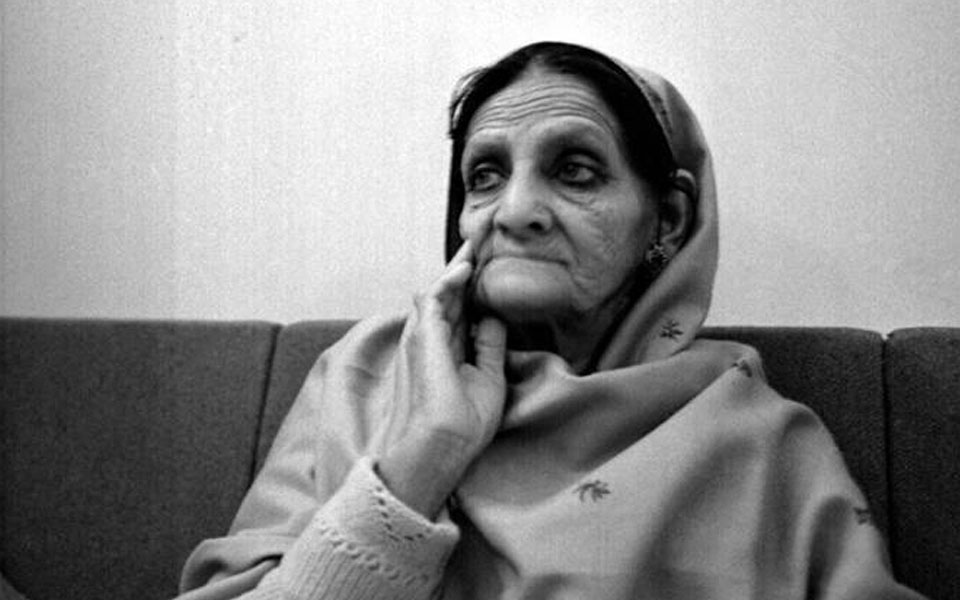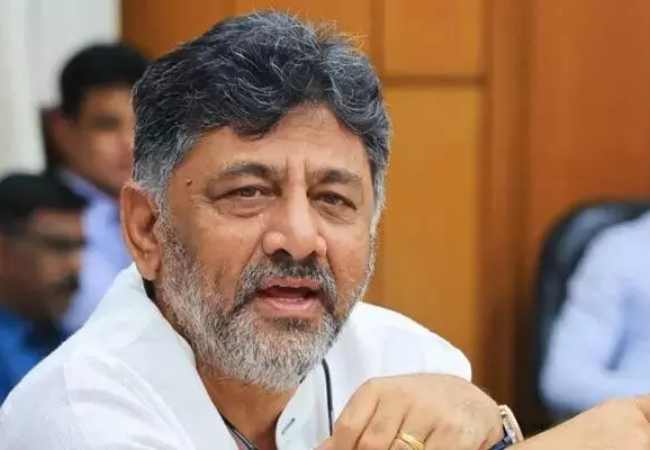Indore, Jul 31: A grandson of Shah Bano, the woman who became the face of the legal battle for married Muslim women's rights, supports the ban on triple talaq, but says punishment for husband can make the wife's life more miserable.
The bill providing for imprisonment for husband for giving instant triple talaq was passed by Parliament on Tuesday.
In 1985, the Rajiv Gandhi government nullified, by enacting a law, the Supreme Court's landmark judgment which had ruled that Shah Bano was entitled to get maintenance from her husband, an Indore-based lawyer, who had divorced her.
Speaking to PTI here on Wednesday, Bano's grandson Jubair Ahmad Khan (45), a lawyer and tax consultant, said, "In Islamic Sharia there is no concept of divorce by uttering `talaq' thrice. It is good that the government has enacted a law to stop this practice."
But he did not approve of the contentious Muslim Women (Protection of Rights on Marriage) Bill, 2018, passed on Tuesday by the Rajya Sabha, in its present form, he said.
"A good thing was presented in a wrong way. A criminal part has been added to this bill which can be misused like IPC section 498-A (which seeks to punish husband or in-laws who mistreat woman for dowry)," he said.
The bill provides for up to three years in jail for husband for giving triple talaq.
"Suppose a man is sent to jail by the court on the basis of his wife's complaint of triple talaq. In these circumstances, can the woman's in-laws would like to keep her with them?" Khan asked.
"Will the husband be able to accept her back after the release from jail?" he added.
"It takes a long legal process for a woman to get maintenance from husband. So how a woman who is the victim of triple talaq and her children will survive after her husband is jailed?" he asked.
"There should be more provisions for ensuring financial support for the victim of triple talaq," he said.
Recalling the long legal battle of his grandmother who died in 1992, Khan said, "My grandmother had filed a lawsuit seeking maintenance from my grandfather after the divorce.
"And the issue of financial protection for a divorced women is still important and relevant," Khan stated.
Let the Truth be known. If you read VB and like VB, please be a VB Supporter and Help us deliver the Truth to one and all.
Bengaluru (PTI): Karnataka has proposed a new Information Technology Policy for 2025–2030, offering extensive financial and non-financial incentives aimed at accelerating investments, strengthening innovation and expanding the state's tech footprint beyond Bengaluru.
The Karnataka Cabinet gave its nod to the policy 2025–2030 with an outlay of Rs 445.50 crore on Thursday after the Finance Department accorded its approval.
The policy introduces 16 incentives across five enabler categories, nine of which are entirely new, with a distinctive push to support companies setting up or expanding in emerging cities.
Alongside financial support, the government is also offering labour-law relaxations, round-the-clock operational permissions and industry-ready human capital programmes to make Karnataka a globally competitive 'AI-native' destination.
According to the policy, units located outside Bengaluru will gain access to a wide suite of benefits, including research and development and IP creation incentives, internship reimbursements, talent relocation support and recruitment assistance.
The benefits also include EPF reimbursement, faculty development support, rental assistance, certification subsidies, electricity tariff rebates, property tax reimbursement, telecom infrastructure support, and assistance for events and conferences.
Bengaluru Urban will receive a focused set of six research and development and talent-oriented incentives, while Indian Global Capability Centres (GCCs) operating in the state will be brought under the incentive net.
Incentive caps and eligibility thresholds have been raised, and the policy prioritises growth-focused investments for both new and expanding units.
Beyond incentives, the government focuses on infrastructure and innovation interventions.
A flagship proposal in the policy is the creation of Techniverse -- integrated, technology-enabled enclaves developed through a public-private partnership model inside future Global Innovation Districts.
These campuses will offer plug-and-play facilities, artificial intelligence and machine learning and cybersecurity labs, advanced testbeds, experience centres, and disaster-resistant command centres.
There will also be a Statewide Digital Hub Grid and a Global Test Bed Infrastructure Network, linking public and private research and development, and innovation facilities across Karnataka.
The government has proposed a Women Global Tech Missions Fellowship for 1,000 mid-career women technologists, an IT Talent Return Programme to absorb experienced professionals returning from abroad, and broad-based skill and faculty development reimbursements.
Shared corporate transport routes in Bengaluru and tier-two cities will be designed with Bengaluru Metropolitan Transport Corporation and other transport entities to support worker mobility.
The government said the policy is the outcome of an extensive research and consultation process involving TCS, Infosys, Wipro, IBM, HCL, Tech Mahindra, Cognizant, HP, Google, Accenture and NASSCOM, along with sector experts and stakeholder groups.
It estimates an outlay of Rs 967.12 crore over five years, comprising Rs 754.62 crore for incentives and Rs 212.50 crore for interventions such as Techniverse campuses, digital grid development, global outreach missions and talent programmes.





